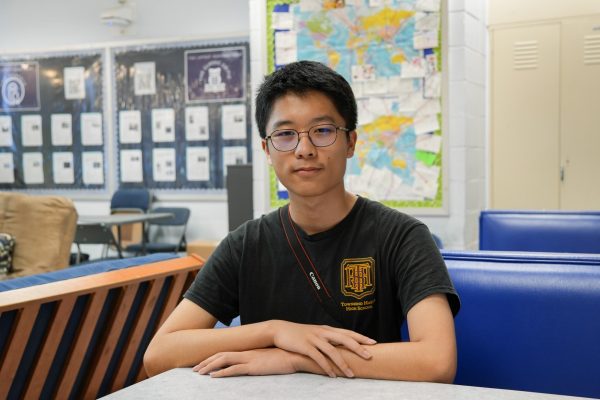
At the end of the school year, all students received the annual summer reading assignment, but this year’s looked a little different. Whereas last year asked students to write a response to the reading at home, this year’s prompt says that when school begins in the fall English teachers will “give [students] an in-class writing prompt that will serve to check [their] familiarity with the text, demonstrate [their] writing skills, and ask [them] to analyze the larger themes of the text.” The shift is an increasingly common one. As students use Artificial Intelligence tools to create their at-home written assignments, more and more in-class assignments have become commonplace.
“The reality is as an English department, we are tasked with preparing students for varied on-demand writing tasks that they will be met with,” said English Assistant Principal Ryan Dunbar. He said that students not only have to write essays by hand on the English Regents or with computers during timed scenarios on AP tests, but that he anticipates colleges also returning to more handwritten exams and essays.
“It’s important that we prepare students to be able to think critically and write coherently on the fly. Because this is an important life skill,” he said.
In some ways, the shift feels abrupt as for many students the COVID-19 pandemic changed every assignment to the digital world of Google Classroom.
“There are more online resources to help students learn effectively. But through the recent developments with AI, I feel like more students are taking advantage of this,” said sophomore Adora Uddin.
A number of students said that they feel comfortable with handwritten assignments.
“Whenever there’s a page in front of me I think, ‘this is here, it needs to be done.’ Whereas with digital assignments there’s more of an ‘out of sight out of mind’ mentality that students develop,” said sophomore Anjali Jagmohan.
“I definitely feel that I learn more when I write rather than typing where I am just guiding my fingers and not retaining anything that I am writing,” said sophomore Tracy Chen.
While some students feel comfortable with hand-written assignments, others feel there should be more of a balance. Sophomore Guadalupe Castro said, “students should learn how to engage with technology that will affect their life but it’s also important to keep a traditional style [for some assignments].”
“Ultimately technology will work better for certain courses, especially ones that connect to a certain career path,” said Anjali. “But a student knows themselves better than anyone else and knows what suits them best in their learning experience. The shift from physical to online learning during COVID definitely made it difficult for me to function, and if I could go back to completing all assignments physically I would.”
A potential rise in more handwritten assignments coincides with the upcoming bell-to-bell ban on student cell phone use in school. About the upcoming ban, Parent Coordinator Jodi Lasoff said that parents have expressed concerns to her about overuse of cell phones. “They’re concerned about how much time their kids are spending on screens throughout the day,” Ms. Lasoff said.
On the cell phone ban, junior Abraham Fashakin said, “device usage has only served to distract or tempt students while teachers are teaching. People always feel the urge to use their phone, even when they appear to be listening to an important lesson.”
While the new ban does not appear to outlaw use of laptops or tablets during class, if teachers find that screens in general cause distraction then this potential return to more handwritten assignments in class might lead to more scenarios where students go completely tech free.





























